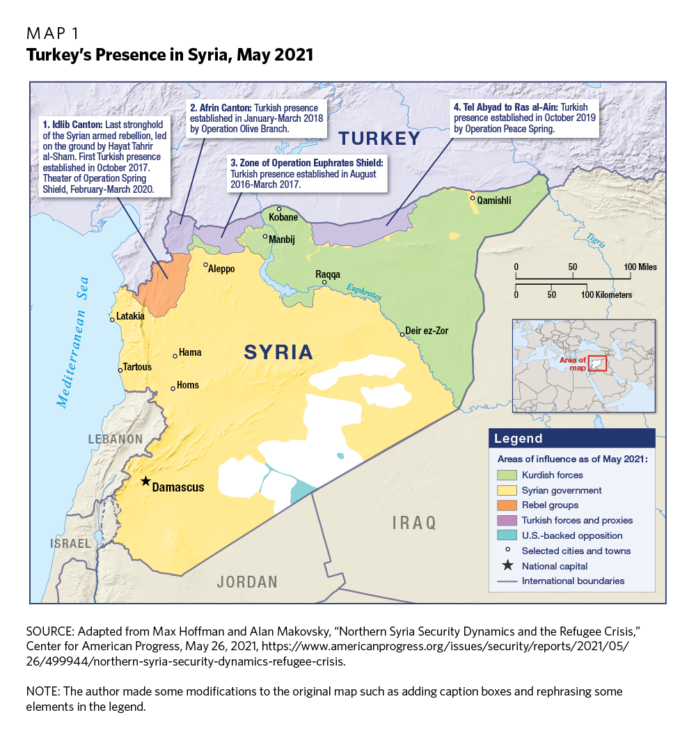By Fehim Tastekin
ISTANBUL (Al-Monitor) — Having won May 28’s runoff vote, Turkish President Recep Tayyip Erdogan will extend his rule into a third decade with piles of foreign policy issues on his plate. The strategy that won him reelection and his desire to build a legacy will both require Erdogan to sustain and nurture the notion of a “strong Turkey” in foreign policy.
Normalization with Syria is the thorniest dossier, calling for drastic decisions. The return of the Syrian refugees — either forcibly or voluntarily — was a top issue on the campaign trails. Any progress there depends on not only reconciliation with Damascus but also the provision of living spaces to the returnees. A Turkish-Syrian deal alone cannot smooth the way for reconstruction. US and European objections will have to be overcome as well.
Earlier this month, Turkey and Syria agreed to continue dialogue toward normalization at a four-way meeting in Moscow involving Russia and Iran. Nevertheless, Damascus maintains that the withdrawal of Turkish forces from Syria is a precondition for any meeting between the two countries’ leaders.
No Immediate Withdrawal from Syria
Erdogan is unlikely to go for a withdrawal without crushing the de facto autonomous administration in the north led by Kurdish groups that Ankara sees as terrorists. He built his election coalition around the pledge of resolutely fighting terrorism and remains reliant on his nationalist partners to command the majority in parliament.








